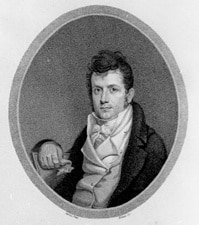The First Amendment has done much to protect individual rights, but to be effective, it must be enforced. There are times in U.S. history where mob violence has made a mockery of its guarantees, including freedom of the press, particularly when local officials did not step in to help.
In 1837, the abolitionist Elijah Lovejoy was killed by an armed mob. In 1844, Philadelphia was the scene of ethnic rioting that resulted in the death of Roman Catholics and the destruction of some of their properties.
Before either of these events, a riot in Baltimore reflected local anger over the publication of the Federalist Republic, a newspaper run by Alexander Contee Hanson.
Reflecting sentiments that prevailed among members of the Federalist Party, it had vehemently opposed American participation in the War of 1812, which Congress had declared at the request of President James Madison, largely over English interference with American shipping. After being driven from his business by rioters, Hanson had retreated to Georgetown but returned to Baltimore where he resumed his vitriolic verbal attacks against the war and its Democratic-Republican supporters.
Violent mob attacks newspaper for opposition to War of 1812
After setting up shop in a brick house in Baltimore, Hanson barricaded himself there with a number of armed defenders including Henry (Light Horse) Harry Lee, the father of Robert E. Lee, and James M. Lingam, both heroes of the Revolutionary War. After the house was violently attacked and Democratic Republican officials refused to extend protection to its defenders, they eventually surrendered and were taken to jail.
Despite assurances that they would be protected, rioters attacked them again at the jail in an horrific attack that left Lingam dead, Lee severely injured and disfigured (one attacker had attempted to cut off his nose), and Hansen seriously wounded. Ironically, rioters referred to Hansen and his allies as “Tories” because they opposed the war with Britain.
Democratic Republicans had severely criticized the Sedition Acts that Federalists had adopted during the quasi-war with France in 1798 to quell dissent. President Madison’s attorney general William Pinkney proposed a similar law during the War of 1812, but he did not receive the support of Madison, who was a principal author of the First Amendment, and Congress did not adopt the law.
In similar fashion, lynchings of African Americans continued well into the 20th century, as did opposition to members of the press who tried to stop the practice.
John R. Vile is a political science professor and dean of the Honors College at Middle Tennessee State University.

